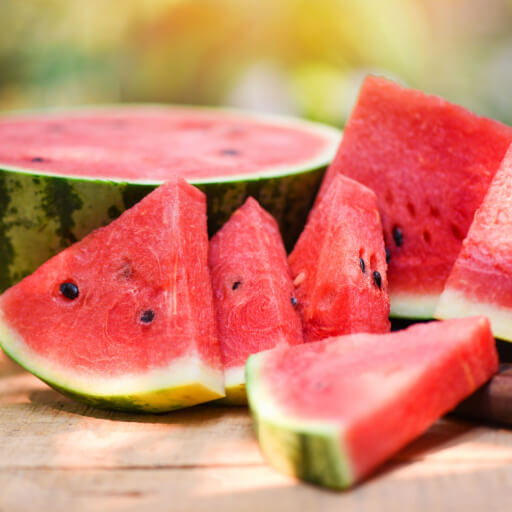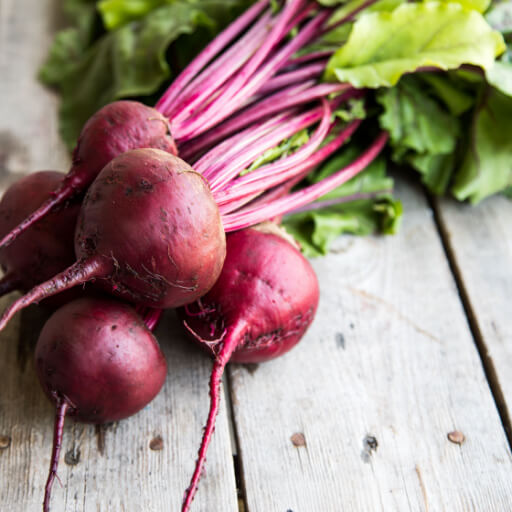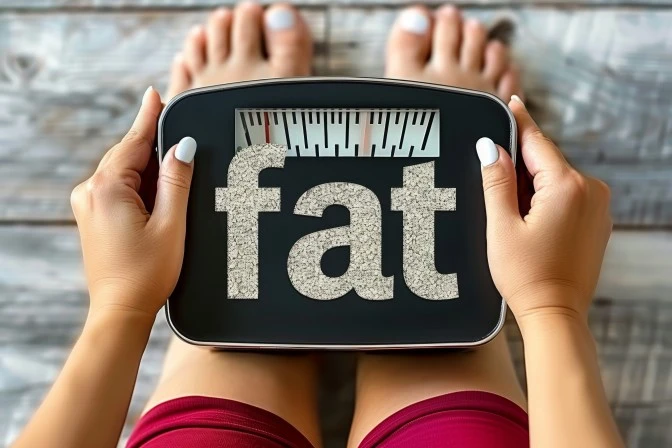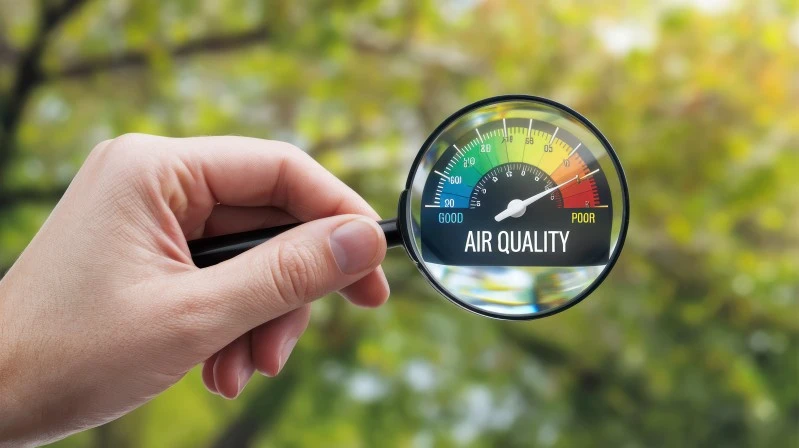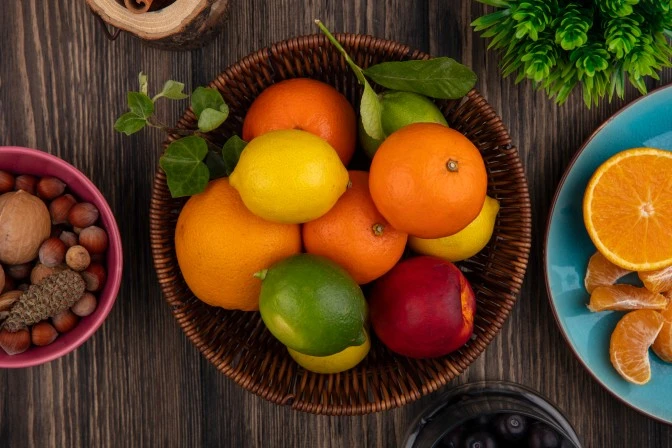Watermelons are a delicious and watery summertime fruit. However, it contains natural sugars, which may spike your blood sugar level. This raises an important question – “Is watermelon good for people with diabetes?” The answer is yes. You can consume watermelons even if you have diabetes, as a diet packed with fruits and vegetables can help lower blood sugar levels.
Watermelon and diabetes: The connection
There’s no particular research that shows the connection between watermelon consumption and diabetes management. However, there is some evidence that eating watermelon may help reduce your risk of certain diabetes-related complications. Watermelon is generally safe for people with diabetes if eaten in moderation. It contains a moderate amount of lycopene, which gives the fruit its color. Lycopene is also considered a powerful antioxidant and may help reduce your risk of cardiovascular disease. If you have diabetes, you should limit your watermelon portion sizes and avoid watermelon juice, which has a higher sugar concentration and lacks fiber.
Nutritional value of watermelon
Is watermelon good for diabetics? Let’s look at its nutritional value:
- Calories: 30
- Water: 91%
- Carbs: 7.6 grams
- Sugar: 6.2 grams
- Dietary Fiber: 0.4 grams
- Fat: 0.2 grams
- Protein: 0 grams
- Cholesterol: 0 milligrams
- Vitamin C: 13%
- Vitamin B6: 0%
- Iron: 1%
- Magnesium: 2%
Glycemic index of watermelon
The GI (glycemic index) of foods plays a vital role in affecting your blood sugar level. GI is the measurement of how long it takes for the sugar in the food to enter your bloodstream.
Watermelon has a GI of 72, which is considered to be high. However, as it is full of water, a typical watermelon serving of 120 grams comprises a GI of 5, making it a healthy option. Watermelon juice has a high GI, so you can avoid it if you have diabetes.
Glycemic index (GI) vs. Glycemic load (GL)
The Glycemic Index (GI) shows how quickly a food with carbs can raise your blood sugar. The Glycemic Load (GL) considers both how fast the food raises blood sugar and how much carbohydrate is in a normal serving, so it shows the actual effect on your blood sugar. For example, watermelon has a high GI, which means it can raise blood sugar quickly. But a normal slice of watermelon doesn’t have many carbs, so its GL is low. This means eating it won’t raise your blood sugar much.
In short: GI = how fast sugar rises, GL = how much sugar actually rises.
Understanding the sugar content of watermelon
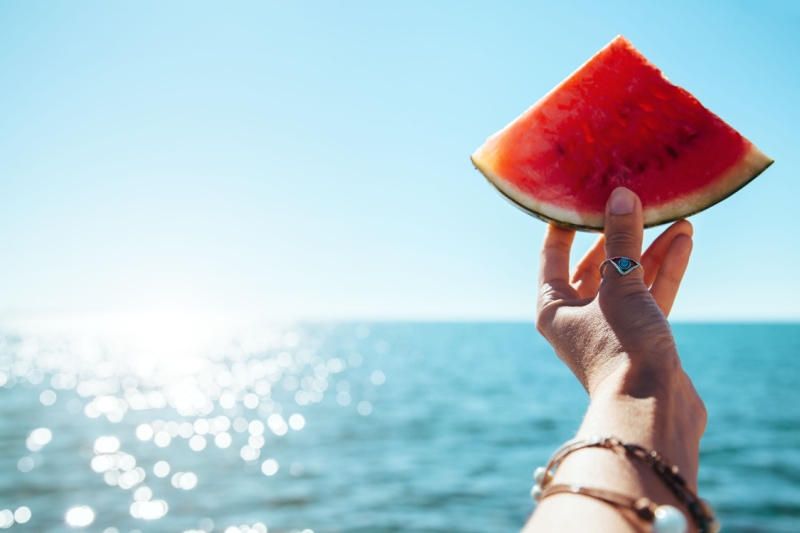
The sugar content in a 286-gram watermelon is 17.7 grams, whereas a cup contains only 9.5 grams of sugar. The amount of sugar you consume depends on the watermelon quantity.
Benefits of watermelon for sugar patients
Watermelons are rich in several nutrients, which, in turn, provide several health benefits, which answers the question – “Is watermelon good for diabetics?”:
- Vitamin A: This nutrient is responsible for maintaining normal vision and enhances the function of vital organs, including the heart, kidneys and lungs.
- Vitamin C: Consuming more vitamin C-rich foods can improve your cardiovascular system, enhance your immunity, and reduce the frequency of common colds.
- Fiber: The high fiber content of watermelon helps improve your digestive health and regulates your bowel movements.
- Potassium and amino acids: Just one slice of watermelon provides 320 milligrams of potassium and citrulline, which helps maintain your blood pressure levels. The citruline also enhances the body’s process of converting foods into energy.
Portion control: How much watermelon can diabetics eat?
If you have diabetes, you can usually eat watermelon in moderation. A safe portion is about one cup of chopped watermelon (around 150 grams) to help keep blood sugar under control. Watermelon does have natural sugars, but it’s mostly water, contains some fiber and has nutrients like lycopene, making it a healthy fruit for diabetics. To slow down sugar absorption, you can eat it with some protein or healthy fat, such as nuts, seeds or Greek yogurt.
Incorporating watermelon
If you want to add watermelon to your diabetic-friendly diet, balance it with foods with lots of protein and healthy fats that will help slow down sugar absorption, helping people with diabetes avoid high blood glucose levels. With a lifestyle condition like diabetes, it is advisable to pair watermelon with nuts such as walnuts and almonds and seeds like flaxseeds, chia seeds, or sunflower seeds – foods rich in healthy fats and fibers. This combination can keep you satiated for a long time, slowing the rate of sugar absorption into your bloodstream. Like most fruits, it is wise to eat watermelons without adding table sugar. While consuming watermelons, avoid eating other high-GI foods like mangoes and bananas, as they can lead to a sudden spike in your blood glucose levels.
Recipes for diabetics
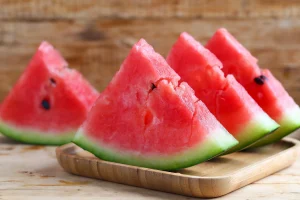
Watermelon can be used to make several healthy and delicious dishes for people with diabetes. Some of them include:
- Watermelon Sorbet
- Watermelon popsicles
- Watermelon ice cream
- Grilled watermelons
- Pickled watermelons
Other diabetes-friendly fruits you can try
Other diabetes-friendly fruits you can include to your diet are the following:
- Cherries
- Peaches
- Plums
- Guava
- Papaya
- Avocado
- Grapefruit
These fruits are high in fiber, vitamins, and antioxidants, which can help manage your blood sugar. When eating fruit, it’s best to choose whole fruits instead of juices, keep the portion size small and, if possible, eat them with protein or healthy fats, like nut butter, to slow down sugar absorption.
Myths debunked
Here are 2 common myths about watermelon for people with diabetes:
- Watermelon seeds harm your health: A big misconception about watermelon seeds is that they can negatively affect your health. Watermelon seeds are safe to eat and can be a valuable source of nutrients. They are high in healthy fats, protein and minerals, including magnesium, iron and zinc.
- Watermelons cannot be consumed at night: It is a common misconception that eating watermelon at night can add weight or cause digestive issues. This is simply not the case. Scientific evidence does nothing to back these claims, so you can be proportional about snacking on watermelon. It is an easy-to-digest, low-calorie fruit, replete with water, so it can help keep you hydrated no matter when you eat it. The biggest key is self-regulation. As a part of a balanced diet, it can be eaten in the morning, in the middle of the day, or at the end of the evening.
With the ongoing debate surrounding healthy fruit options for those with diabetes, you might ask, “Is watermelon good for diabetics?” Contrary to misconceptions, when you consume 100 to 150 grams daily in moderation and as part of a balanced diet, watermelons can indeed be beneficial to people with diabetes.
Conclusion
Watermelons can be a fun addition to your diet as a diabetic if consumed in moderation. To reduce sugar absorption you can have it with nuts, seeds, etc. Lycopene, a powerful antioxidant present in watermelon can help people with diabetes reduce inflammation and oxidative stress.
Key Takeaways
- Watermelon is rich in vitamin A, C, fiber, and potassium.
- Its seeds do not harm your health.
- Watermelon sorbet, popsicles, and ice cream are some of its recipes.
Frequently Asked Questions
Yes, if consumed in moderation, watermelon is generally safe for people with type 2 diabetes. Include it as part of a balanced diet, keeping in mind its natural sugars.
Yes, watermelon can raise blood sugar quickly because it has a high glycemic index (GI).
If you have diabetes, you can eat about 1 cup (150 grams) of watermelon a day. Eat it in moderation because it can raise blood sugar.
No fruit is completely “best” for people with diabetes. All fruits have natural sugar, so they should be eaten in moderation. But watermelon and ripe bananas usually raise blood sugar less than mangoes.
No, you should avoid eating watermelon on an empty stomach if you have diabetes. It’s better to eat it in moderation as part of a meal with protein or healthy fats to slow sugar absorption and prevent blood sugar spikes.
Yes, people with diabetes can eat watermelon in a weight loss diet, but only in moderation. It has low effect on blood sugar and is mostly water, so it won’t raise blood sugar much. Always check with a dietitian before starting any diet.
No, watermelon juice is not ideal for people with diabetes because it contains concentrated sugars and lacks the fiber found in whole watermelon, which can cause rapid blood sugar spikes.
You may also be interested in the following blogs:
- The Great Mango Debate: Is This Fruit Safe For People With Diabetes?
- Is Papaya Good For Diabetes? Discover 3 Surprising Benefits For Blood Sugar Management
Popular Searches
How to lower blood pressure | Fruits good for liver | Unhealthy foods | Ragi Benefits | Basal Metabolic Rate | Acupressure points for High Blood Pressure | Ayurvedic medicine for blood pressure | How to control cholesterol at home | Homeopathy for Asthma | Biological Age | Home remedies for TB | Natural beta blockers | Negative effects of internet | Types of walking | Blood pressure calculator | Blood sugar calculator | BMI Calculator
Subscribe to the Activ Living Community to stay up to date with the latest health tips and trends through expert videos, podcasts, articles, and much more in nutrition, fitness, mindfulness, and lifestyle conditions like Asthma, Blood Pressure, Cholesterol, and Diabetes. Activ Living ke saath sahi sehat ki shuruaat ABHIkaro.





 1800-270-7000
1800-270-7000

